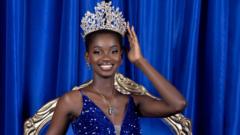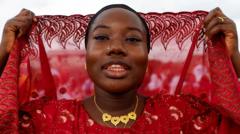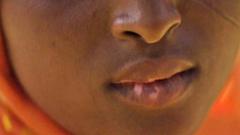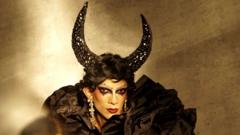The Miss Ivory Coast pageant pioneers a ban on wigs and weaves, promoting natural beauty and self-acceptance among contestants. Amidst a thriving hair industry, new rules spotlight a shift towards authenticity and diverse expressions of femininity.
Embracing Authenticity: New Beauty Pageant Rules Challenge Hair Norms in Ivory Coast

Embracing Authenticity: New Beauty Pageant Rules Challenge Hair Norms in Ivory Coast
A dramatic shift in Miss Ivory Coast competitions encourages contestants to flaunt their natural hair, sparking a cultural debate on beauty standards.
Long-standing norms within beauty pageants in Ivory Coast are undergoing a transformative change as the Miss Ivory Coast competition introduces groundbreaking rules prioritizing natural hair. For decades, contestants have adorned themselves with long-flowing wigs and hair extensions, conforming to conventional standards of beauty that often favor artificial enhancements. However, the recent victory of Marlène-Kany Kouassi, who proudly wore her natural hair while being crowned Miss Ivory Coast in 2022, has sparked a call for authenticity.
The pageant organizers have taken a bold step in doing away with wigs, weaves, and extensions from the competition's preliminary stages held across 13 cities in Ivory Coast, including areas catering to the diaspora. According to Victor Yapobi, president of the Miss Ivory Coast organizing committee, the initiative aims to celebrate the raw, authentic beauty of participants: "We want the candidates to be natural...Beauty must be raw." With this shift, contestants can showcase their own hairstyles, whether braided or straightened, avoiding the high costs often associated with elaborate hairdos.
This year, not only has the prohibition of wigs been implemented, but changes include adjustments to height and age requirements, as well as a reduction in the entrance fee, lessening the financial burden on contestants. Many women have welcomed the new regulations, expressing pride in representing their natural selves. Emmanuella Dali, a contestant from Daloa, shared her excitement, stating how the rule instills a sense of pride in African womanhood and individuality.
However, reactions to the new regulations are mixed. While some find empowerment through the natural hair movement, others remain critical, lamenting the loss of personal expression that wigs and weaves provide. The rule change has fueled discussions about beauty standards in Ivory Coast, with some contestants reflecting on how their perceptions of beauty have shifted—highlighting newfound confidence in their natural looks.
Despite the evolving landscape of beauty perception, concerns arise regarding the economic implications for the local hair industry, valued at over $300 million annually. Hairdressers like Ange Sea express worries that the ban on wigs threatens their livelihoods, underscoring the deep-rooted connections between beauty culture and economic realities in the region.
As the preliminary rounds progress, the pageant serves not only as a platform for competition but also as a reflection of broader societal expectations and attitudes toward beauty. The Miss Ivory Coast competition will culminate in June, with much anticipation surrounding the continuation or modification of the wig ban for the final contestants, as Yapobi emphasizes the importance of embracing one's roots. For many women participating, the experience transcends winning; it is about reclaiming their identity and instilling pride in their natural beauty.
















